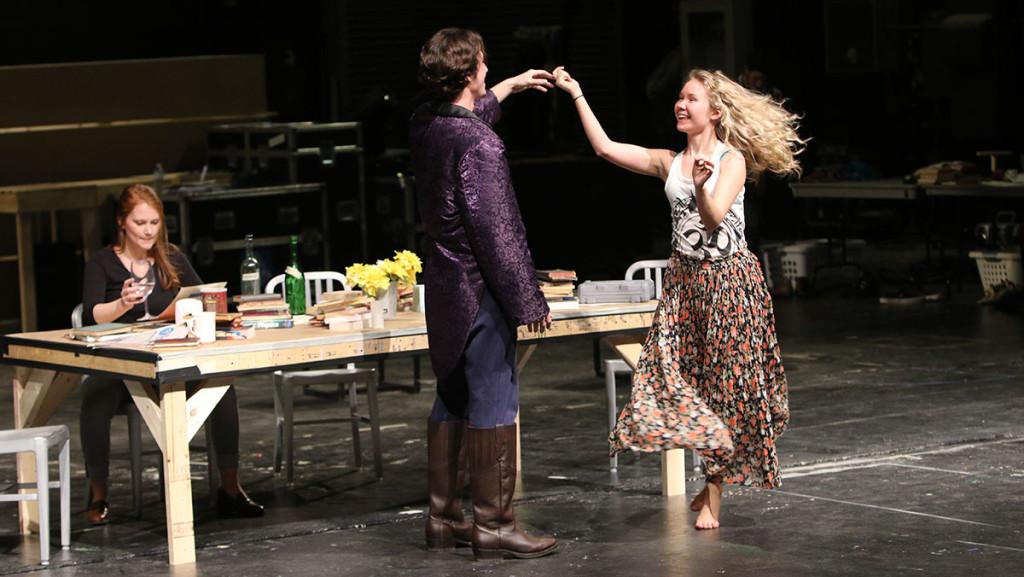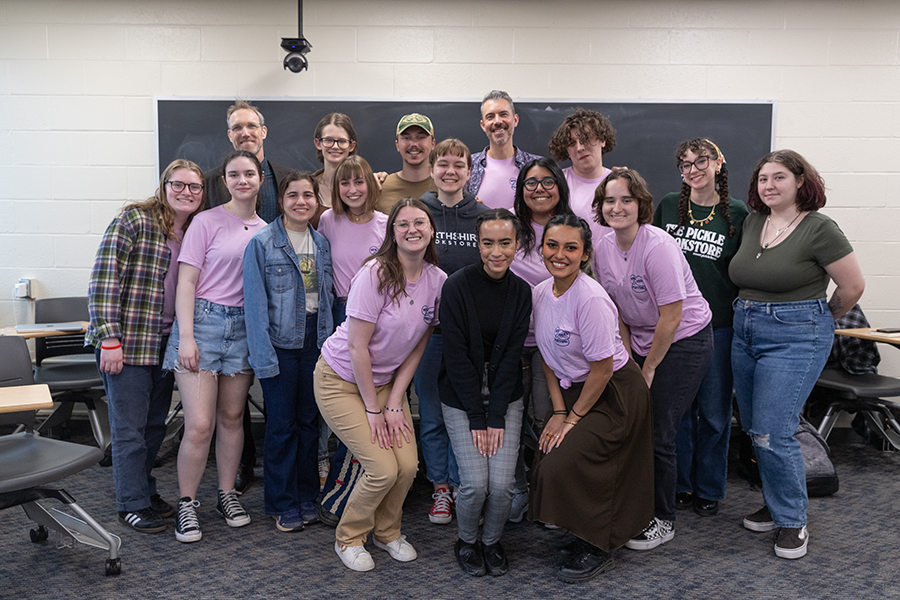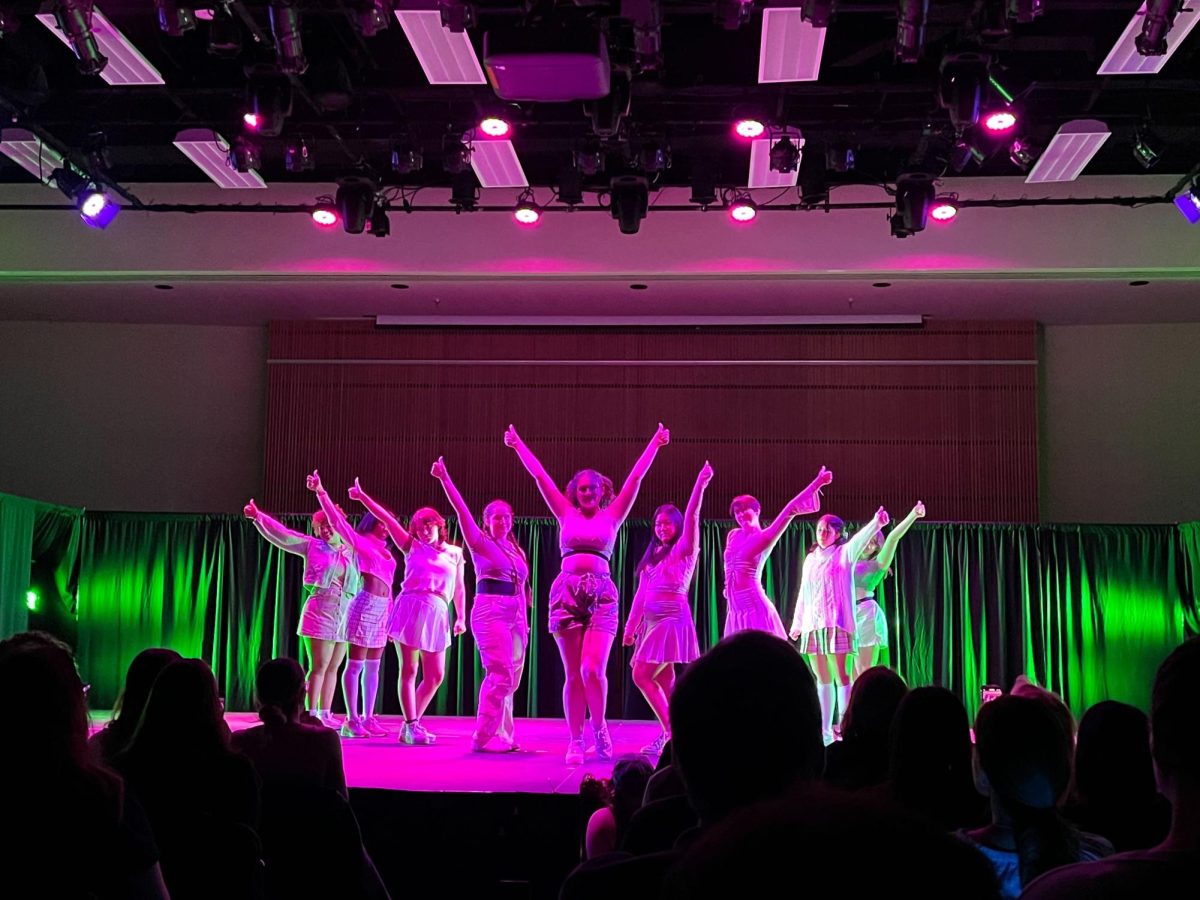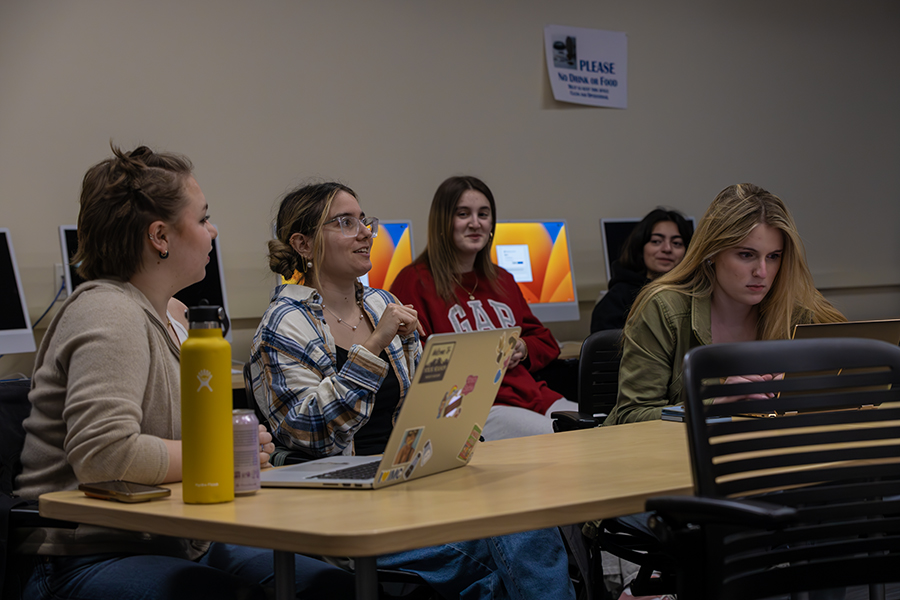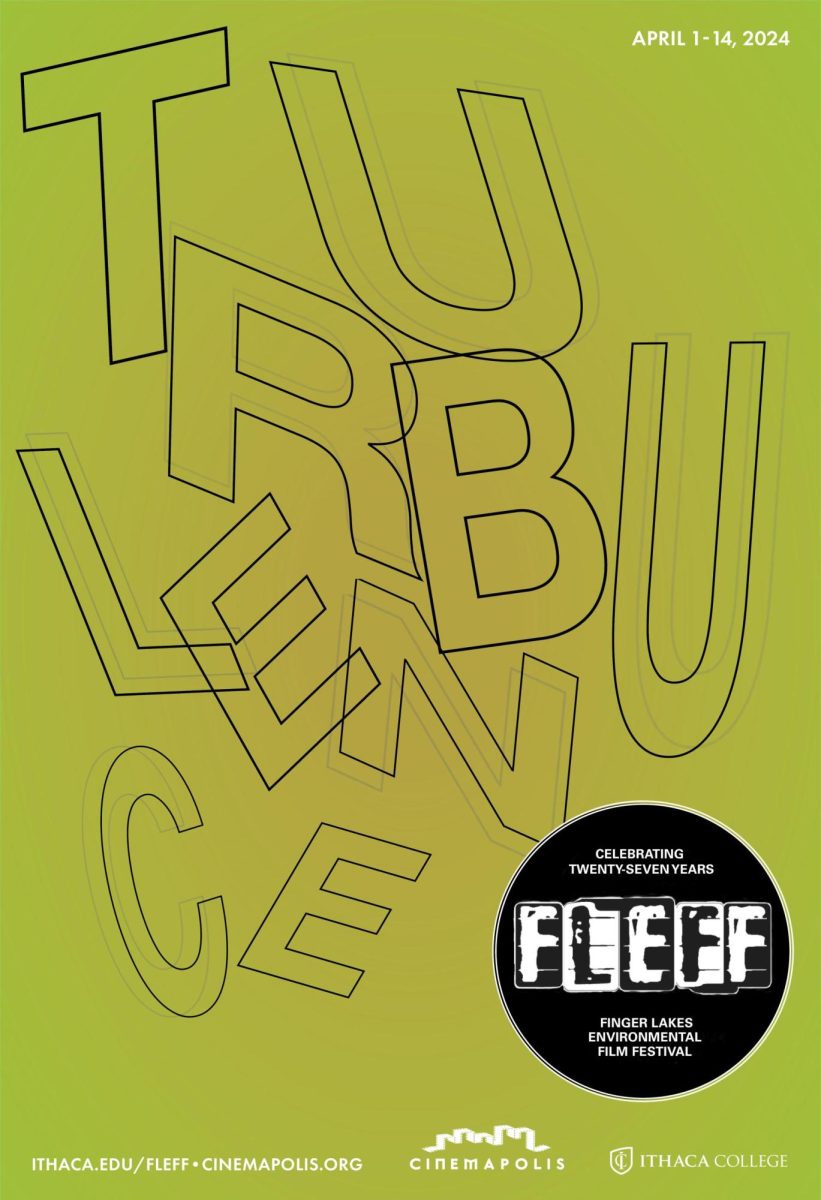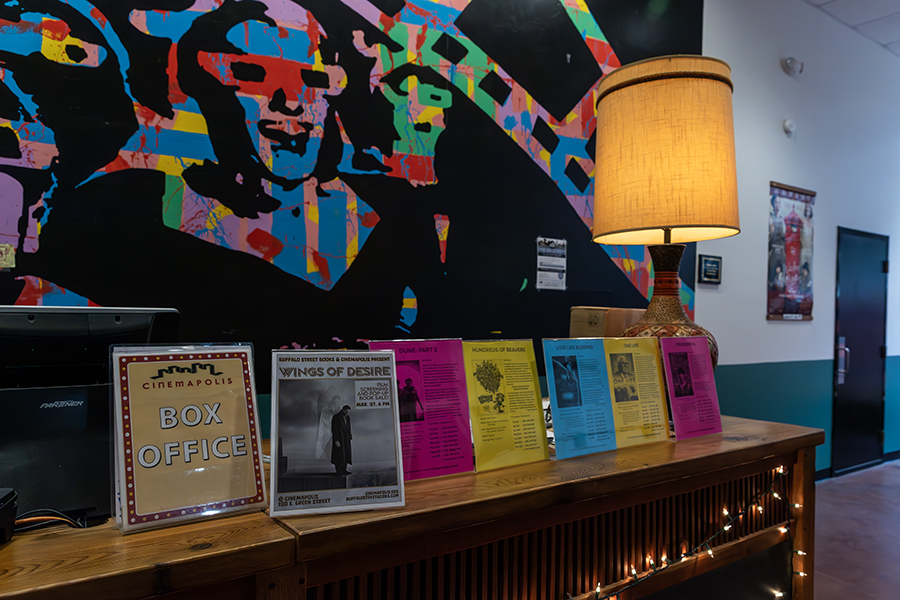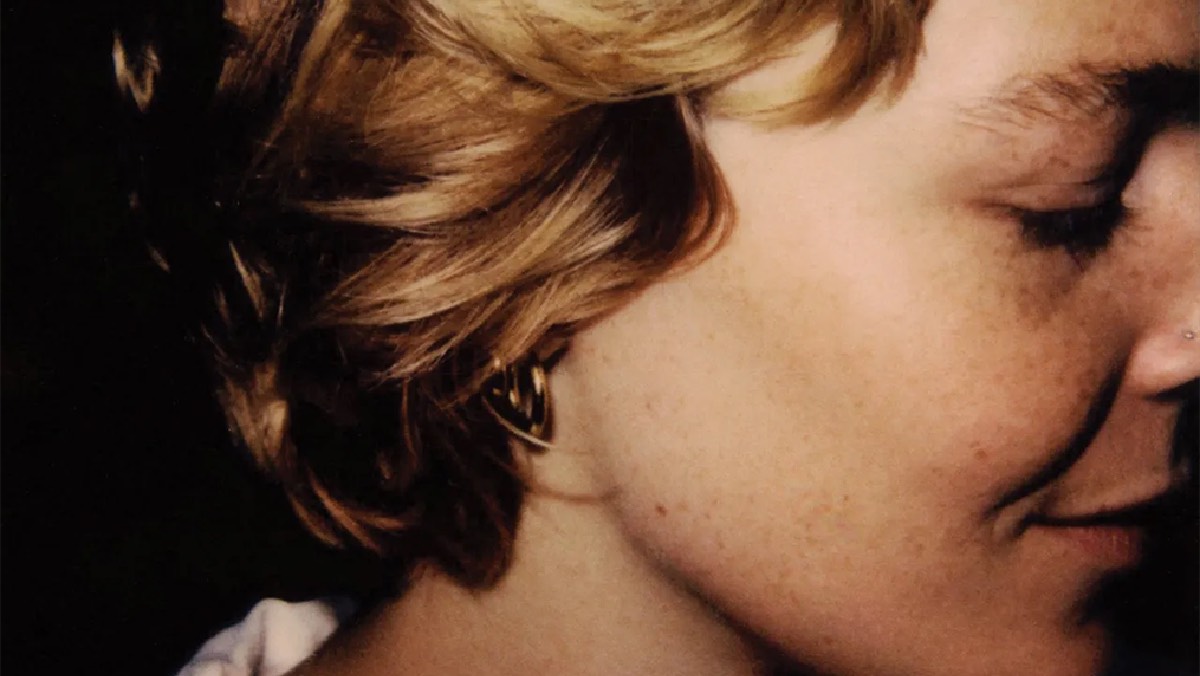Shifting between the 19th and 20th centuries, “Arcadia” explores the themes of intellect and human relationships. The Ithaca College Main Stage Theater’s production of “Arcadia” follows the lives of Thomasina Coverly and Chloe Coverly, members of the Coverly family in 1809 and 1993. This play incorporates elements of math and science, and shows how humans interact with one another.
“Arcadia” opens up with Thomasina and her tutor, Septimus Hodge, sitting in the family’s living room in 1809. The two discuss mathematics and gossip about a recent scandal. The play then fast-forwards a century, and the audience is transported to 1993, where Lord and Lady Croom, relatives of Thomasina and her family, currently reside with their three children: Chloe, Valentine and Gus. Throughout the play, the time periods shift back and forth between Thomasina’s making discoveries about theories, such as Newton’s Law of Motion, and Chloe’s researching those discoveries and events from 1809 with the help of others in her time.
The entire play takes place in the same room in the Coverly family’s house, which has been passed down from generation to generation. Senior Randy Wong-Westbrooke, scenic designer of the play, said the room is a large space marked by elegance.
“It’s big and bright and crisp and elegant,” Wong-Westbrooke said. “It’s supposed to give a really balanced open sense when you first walk in. It’s very clean and orderly, and there’s simplicity in that.”
While the set doesn’t change at all, the period changes drastically. Although the play takes place in two distinct periods, the characters in each period share some similarities. Thomasina, played by sophomore Sandrinne Edstrom, is paralleled by Chloe, played by sophomore Lea Sevola. While Thomasina is considered a genius, Chloe is not as intellectual.
“She isn’t an academic, but she lives around it. She’s more interested in how love affects math and science,” Sevola said.
Senior Isaac VanCuren, assistant director of the play, said although the play relies heavily on academics, the theme is much more complex.
“Overall the play is about discovery — discovery of knowledge and discovery of relationships,” VanCuren said. “The play, at first, seems very heavy in its science and math and history, but it’s not presented in that way. It’s presented through relationships.”
Besides showing the audience different types of discoveries, the play also shows their importance and how there is always going to be more to learn, VanCuren said.
Through Thomasina’s belief that a single theory can solve all of life’s problems, the audience may get the impression that “Arcadia” is a play focused on logic and intellect. However, through Chloe’s research and belief that love disrupts this universal plan that Thomasina studied, it is evident that the main focus actually lies in the complexity of human relationships. Sevola said all of the characters in the play share this common knowledge, which results in meaningful human relationships.
“For me, it goes back to the human connection that there’s this common ground of knowledge that all of these characters share in different ways,” she said. “It produces relationships that are captivating to watch onstage.”
The college’s production of “Arcadia” relied heavily on math behind the scenes as well. Wong-Westbrooke said outside research played an important role in creating the set since he had to study mathematical concepts to incorporate into the set’s design. He said he chose to do this because it relates to how the physical world is created at an atomic level. For instance, some ratios in the height of the walls are based on the Golden Ratio, which is a special number derived from dividing a line into two parts and is equal to approximately 1.618.
“While the math part was the most challenging, it was also the most fun because even though you can’t see all of the geometry that I put into it, it is what made the structure of this world,” Wong-Westbrooke said.
Sevola said she hopes the audience will leave the theater with a hunger for knowledge, similar to Chloe’s hunger for knowledge.
“I hope they’ll have a lot of questions and want to learn more about this play,” Sevola said. “I want the audience to find that craving for knowledge that all characters have within the show.”

